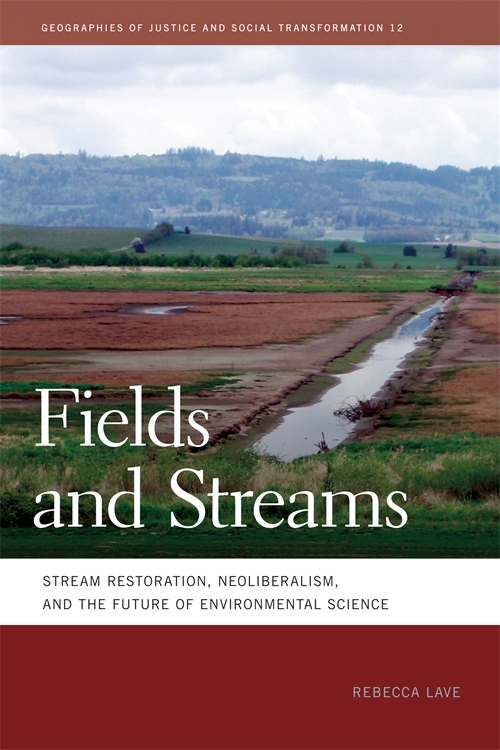How Many Fields in Science Stream: Explore Diverse Career Paths
Science is a vast field with many areas to explore. It offers numerous career paths for curious minds.
Are you wondering about the different fields in the science stream? Science covers everything from the tiniest particles to the largest galaxies. It includes disciplines like physics, chemistry, biology, and earth science. Each field opens doors to unique opportunities and challenges.
Understanding the main areas of science can help you choose the right path. Whether you are interested in studying life forms, chemical reactions, or the laws of the universe, science has something for everyone. This introduction will guide you through the primary fields in the science stream and help you find your passion. Let’s dive in and discover the various branches of science.
Introduction To Science Stream
The science stream is a broad field that encompasses various disciplines. It offers numerous opportunities for those interested in exploring the natural world. This stream is crucial for understanding and solving many real-world problems.
Scope And Importance
The science stream covers a wide range of subjects. These include physics, chemistry, biology, and mathematics. Each subject provides unique insights and skills. Physics helps us understand the laws of nature. Chemistry explores the composition of substances. Biology studies living organisms. Mathematics offers tools for solving complex problems.
Science is essential for technological advancements. It drives innovation and improves our quality of life. Knowledge in science helps in making informed decisions. It also opens doors to various careers. These careers include medicine, engineering, research, and environmental science.
Historical Development
The history of science is rich and diverse. Ancient civilizations made significant contributions. For example, the Greeks studied astronomy and mathematics. The Egyptians practiced medicine and engineering. During the Renaissance, science flourished in Europe. This period saw the birth of modern physics and chemistry.
The Industrial Revolution marked a turning point. It led to rapid advancements in technology and engineering. The 20th century brought about groundbreaking discoveries. These include the theory of relativity and the structure of DNA. Today, science continues to evolve. It addresses new challenges and uncovers new mysteries.
Core Fields In Science
Science is a vast field with many branches. The core fields of science include Physics, Chemistry, and Biology. Understanding these fields is essential for anyone interested in science. Each field has its own unique focus and applications.
Physics
Physics is the study of matter, energy, and their interactions. It covers a wide range of topics, from the smallest particles to the largest galaxies. Important areas in physics include:
- Mechanics – the study of motion and forces.
- Thermodynamics – the study of heat and energy.
- Electromagnetism – the study of electric and magnetic fields.
- Quantum Physics – the study of particles at the atomic level.
Chemistry
Chemistry focuses on substances and their properties. It explains how substances interact, combine, and change. Key areas in chemistry include:
- Organic Chemistry – the study of carbon-based compounds.
- Inorganic Chemistry – the study of inorganic compounds.
- Physical Chemistry – the study of physical properties of molecules.
- Biochemistry – the study of chemical processes in living organisms.
Biology
Biology is the study of living organisms. It explores the structure, function, growth, and evolution of life. Important areas in biology include:
- Botany – the study of plants.
- Zoology – the study of animals.
- Microbiology – the study of microorganisms.
- Genetics – the study of heredity and variation in organisms.
Each of these fields offers unique insights and challenges. Together, they provide a comprehensive understanding of the natural world.
Interdisciplinary Fields
The science stream is vast and interconnected. Interdisciplinary fields blend multiple branches of science to create new areas of study. These fields offer unique insights and advancements.
Biochemistry
Biochemistry merges biology and chemistry. It studies the chemical processes within living organisms. This field focuses on molecules like proteins, lipids, and DNA. Biochemists work in labs, conducting experiments to understand life at a molecular level. Their work impacts medicine, agriculture, and environmental science.
Biophysics
Biophysics combines biology with physics. It examines the physical principles of biological systems. Biophysicists study processes like muscle contraction and nerve function. They use tools from physics to explore complex biological structures. Techniques include X-ray crystallography and MRI.
Astrobiology
Astrobiology is an exciting field. It connects astronomy, biology, and geology. Astrobiologists search for life beyond Earth. They study extreme environments on Earth to understand possible life conditions on other planets. This field addresses profound questions about the universe and our place in it.

Credit: www.amazon.com
Emerging Fields
The science stream is vast and constantly evolving. New fields are emerging, driven by technological advancements and societal needs. These fields offer exciting career opportunities and contribute significantly to our world. Let’s explore some of these emerging fields in science.
Data Science
Data Science combines statistics, computer science, and domain knowledge. It involves analyzing large datasets to extract meaningful insights. Data Scientists use machine learning and artificial intelligence to predict trends and patterns. This field is crucial in industries like healthcare, finance, and marketing.
Key skills for Data Scientists include:
- Programming languages (Python, R)
- Statistical analysis
- Data visualization
- Machine learning algorithms
Data Science is one of the fastest-growing fields in the science stream.
Environmental Science
Environmental Science focuses on understanding and protecting our planet. It studies the interactions between the environment and human activities. This field addresses issues like climate change, pollution, and biodiversity loss.
Environmental Scientists work in:
- Research institutions
- Government agencies
- Non-profit organizations
- Private sector
They develop solutions to environmental problems and promote sustainable practices.
Nanotechnology
Nanotechnology involves manipulating matter at the nanoscale, about 1 to 100 nanometers. It has applications in medicine, electronics, and materials science. Nanotechnology can create stronger materials, better medical treatments, and more efficient electronics.
Key areas of Nanotechnology include:
- Nanomaterials
- Nanomedicine
- Nanoelectronics
- Nanofabrication
This field requires knowledge of physics, chemistry, and engineering.
Nanotechnology is revolutionizing various industries and improving our daily lives.
Applied Sciences
Applied sciences use scientific knowledge to solve real-world problems. They involve practical applications. There are many fields in applied sciences. Below are three important ones:
Engineering
Engineering applies scientific principles to design and build. Engineers create machines, structures, and systems. There are many branches of engineering:
- Mechanical Engineering: Deals with machines and engines.
- Civil Engineering: Focuses on buildings, bridges, and roads.
- Electrical Engineering: Works with electrical systems and circuits.
- Software Engineering: Develops software and applications.
Medicine
Medicine is another key field in applied sciences. It focuses on health and healing. Medical professionals diagnose and treat illnesses. Here are some branches of medicine:
- General Medicine: Treats common diseases and injuries.
- Surgery: Involves operations to fix health problems.
- Pediatrics: Cares for infants and children.
- Psychiatry: Deals with mental health issues.
Agricultural Science
Agricultural science applies scientific knowledge to farming. It improves crop production and animal husbandry. This field ensures food security and sustainability. Key areas include:
- Agronomy: Studies soil and crop production.
- Horticulture: Focuses on growing fruits, vegetables, and flowers.
- Animal Science: Deals with livestock management and breeding.
- Soil Science: Examines soil properties and health.
| Field | Focus Area |
|---|---|
| Engineering | Design and build machines, structures, and systems |
| Medicine | Diagnose and treat illnesses |
| Agricultural Science | Improve crop production and animal husbandry |

Credit: ugapress.org
Career Paths In Science
The science field offers a wide range of career opportunities. Many students are unsure about the different paths they can take. This section will explore three main career paths in the science stream: Academic Research, Industry Roles, and Government Positions.
Academic Research
Academic research is a popular choice for science graduates. Researchers work in universities and research institutions. They aim to expand knowledge in their field.
Key roles in academic research include:
- Professor: Teaches and guides students while conducting research.
- Postdoctoral Researcher: Works on specific projects after completing a PhD.
- Research Assistant: Supports professors and researchers with experiments and data collection.
Industry Roles
Many science graduates find careers in the industry. These roles are crucial in developing new products and technologies.
Popular industry roles include:
- Research Scientist: Conducts experiments to develop new products.
- Quality Control Analyst: Ensures products meet safety and quality standards.
- Biotechnologist: Works on creating new medicines and improving agricultural products.
Government Positions
Government positions offer stable and rewarding careers for science graduates. These roles often focus on public health, environmental protection, and scientific policy.
Key government roles include:
- Environmental Scientist: Studies and solves environmental problems.
- Public Health Officer: Works on preventing and controlling diseases.
- Scientific Policy Advisor: Helps create policies based on scientific research.
Skills And Education
In the science stream, understanding the required skills and education is crucial. This field demands both theoretical knowledge and practical expertise. Let’s dive into the key qualifications and skills needed to excel in various scientific disciplines.
Required Qualifications
To pursue a career in the science stream, specific qualifications are essential. Typically, students need to complete their high school education with a focus on science subjects. This includes Physics, Chemistry, Biology, and Mathematics.
After high school, students can opt for a Bachelor’s degree in their chosen field. Popular choices include Biology, Chemistry, Physics, or Engineering. Some fields may require advanced degrees like a Master’s or Ph.D.
| Qualification | Description |
|---|---|
| High School Diploma | Focus on science subjects like Physics, Chemistry, Biology, and Math |
| Bachelor’s Degree | Specialize in a specific field such as Biology, Chemistry, or Physics |
| Master’s/Ph.D. | Advanced study and research in a specialized area of science |
Key Skills
Success in the science stream relies on a variety of skills. Here are some key skills every science student should develop:
- Analytical Thinking: Ability to analyze data and solve problems.
- Attention to Detail: Careful observation and precision in experiments.
- Critical Thinking: Evaluating information to make informed decisions.
- Communication Skills: Clear and concise reporting of findings.
- Teamwork: Collaborating effectively with peers and professionals.
Additionally, practical skills like using laboratory equipment and conducting experiments are vital. Developing these skills early can pave the way for a successful career in the science stream.

Credit: www.science.org
Future Of Science Careers
Science careers have a bright future, with many diverse fields available. Choices include biology, chemistry, physics, and environmental science, among others. Each offers unique opportunities for discovery and innovation.
The future of science careers looks bright and promising. Many opportunities are emerging due to advancements in technology and global challenges. Science is more important than ever.Technological Advancements
Science careers are evolving with new technologies. Scientists use advanced tools and methods. These include artificial intelligence and machine learning. These tools help solve complex problems quickly. Biotechnology is another growing field. It combines biology and technology. This field offers many job opportunities. Researchers develop new medicines and treatments. They work to improve human health. Environmental science is also advancing. Scientists study climate change and its effects. They use new technologies to gather data. This helps them understand and protect our planet.Global Challenges
Global challenges create new science careers. Climate change is a major issue. Scientists work to find solutions. They study ways to reduce carbon emissions. They also explore renewable energy sources. Public health is another important field. Scientists work on preventing diseases. They study viruses and bacteria. Their goal is to keep people healthy. This field has grown due to global pandemics. Food security is a growing concern. Scientists develop new farming techniques. They work to ensure everyone has enough food. These careers are vital for our future. Science offers many exciting career paths. Each field contributes to solving global problems. The future of science is full of possibilities. “`Frequently Asked Questions
What Are The Main Fields In Science?
The main fields in science include Physics, Chemistry, Biology, Mathematics, and Computer Science. These fields cover a wide range of topics and specializations.
How Many Branches Are In Science Stream?
There are five primary branches in the science stream: Physics, Chemistry, Biology, Mathematics, and Computer Science. Each branch offers various sub-disciplines.
What Careers Can Science Stream Lead To?
Science stream can lead to careers in medicine, engineering, research, IT, and environmental science. It opens numerous opportunities in various industries.
Is Computer Science A Part Of The Science Stream?
Yes, computer science is an integral part of the science stream. It deals with computing, programming, and information technology.
Conclusion
Exploring the fields in the science stream opens many opportunities. Each field offers unique career paths and learning experiences. Chemistry, Physics, Biology, and Mathematics form the core subjects. Engineering and Computer Science are popular choices too. Every student can find a field that interests them.
Knowledge in science leads to exciting and diverse careers. Stay curious and keep exploring. The science stream truly has something for everyone.






